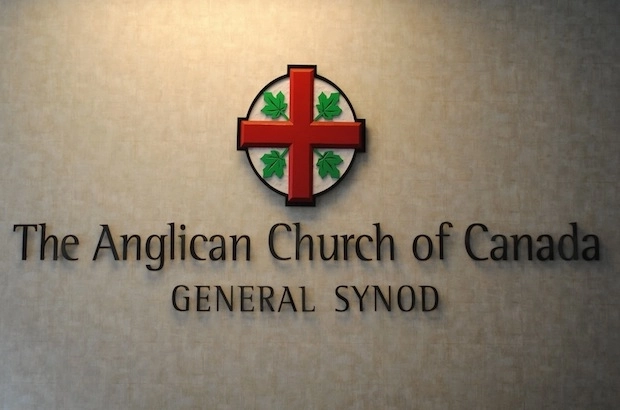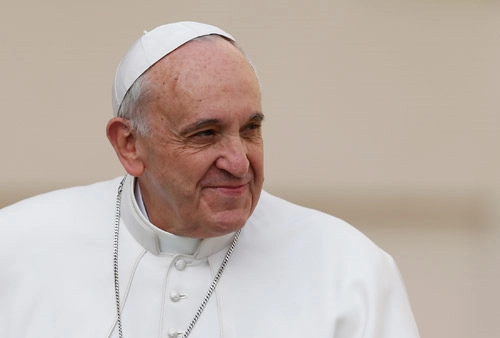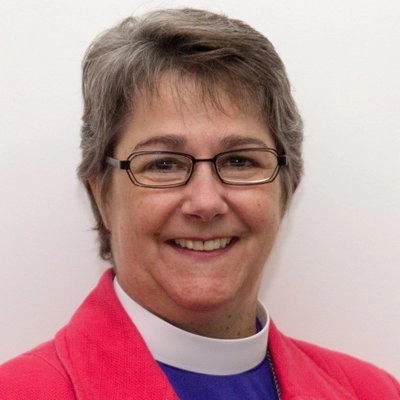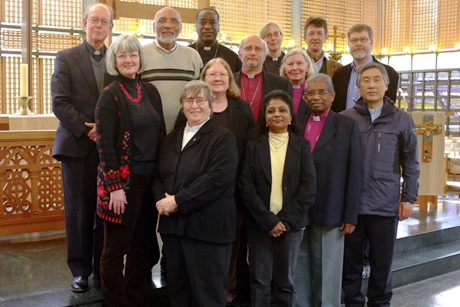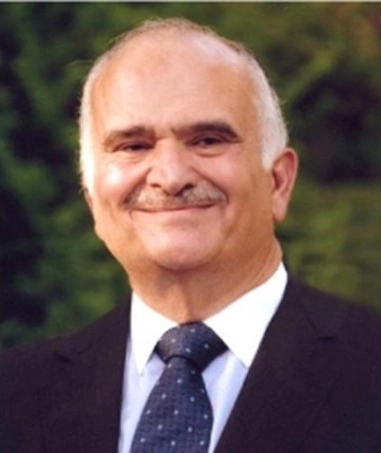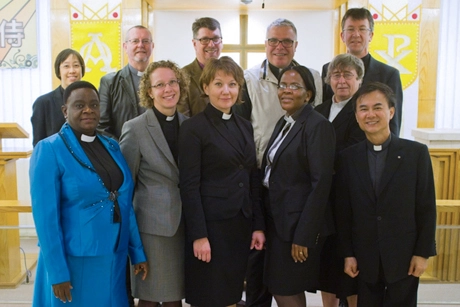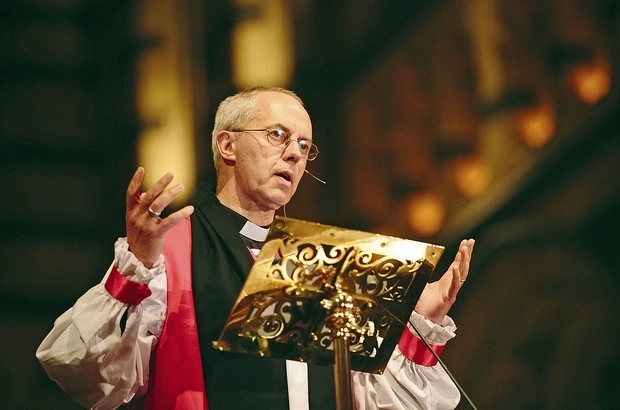- Français
- |
- Booklist
- |
- Week of Prayer
- |
- Links
- Areopagus - a forum for dialogue
- Academic journals
- Acronyms
- Bible tools
- Bibliographies
- Booksellers and publishers
- Churches
- Canadian church headquarters
- Directory of Saskatchewan churches
- Retreat centres
- Saskatchewan church and non-profit agencies
- Ecumenism.net Denominational links
- Anabaptist & Mennonite
- Anglican
- Baptist
- Evangelical
- Independent episcopal
- Lutheran
- Methodist, Wesleyan, and Holiness
- Miscellaneous
- Mormon
- Orthodox (Eastern & Oriental)
- Para-church ministries
- Pentecostal / charismatic
- Presbyterian & Reformed
- Quaker (Society of Friends)
- Roman & Eastern Catholic
- United and uniting
- Documents of Ecumenical Interest
- Ecumenical agencies
- Ecumenical Booklist
- Ecumenical Dialogues
- Glossary
- Human rights
- Inter-religious links
- Justice & peace
- Lectionaries
- Religious news services
- Resource pages
- Search Ecumenism.Net
- |
- Documents
- Ancient & Medieval texts
- Ecumenical Dialogues
- Interreligious
- Anabaptist & Mennonite
- Anglican
- Evangelical
- Lutheran
- Orthodox
- Reformed & Presbyterian
- Roman & Eastern Catholic
- United & Uniting
- Miscellaneous churches
- Canadian Council of Churches (CCC)
- Conference of European Churches (CEC)
- Interchurch Families International Network (IFIN)
- National Council of Churches in Australia (NCCA)
- Lausanne Committee for World Evangelism (LCWE)
- World Council of Churches (WCC)
- Other ecumenical documents
Church traditions
Documents from ecumenical agencies
- |
- Dialogues
- Adventist-Reformed
- African Instituted Churches-Reformed
- Anglican-Lutheran
- Anglican-Orthodox
- Anglican-Reformed
- Anglican-Roman Catholic
- Anglican-United/Uniting
- Baptist-Reformed
- Disciples of Christ-Reformed
- Disciples of Christ-Roman Catholic
- Evangelical-Roman Catholic
- Lutheran-Mennonite
- Lutheran-Mennonite-Roman Catholic
- Lutheran-Reformed
- Lutheran-Roman Catholic
- Mennonite-Reformed
- Mennonite-Roman Catholic
- Methodist-Reformed
- Methodist-Roman Catholic
- Oriental Orthodox-Reformed
- Orthodox-Reformed
- Orthodox-Roman Catholic
- Pentecostal-Reformed
- Prague Consultations
- REC-WARC Consultations
- Roman Catholic-Lutheran-Reformed
- Roman Catholic-Reformed
- Roman Catholic-United Church of Canada
- |
- Quick links
- Canadian Centre for Ecumenism
- Canadian Council of Churches
- Ecumenical Shared Ministries
- Ecumenism in Canada
- Interchurch Families International Network
- International Anglican-Roman Catholic Commission for Unity and Mission
- Kairos: Canadian Ecumenical Justice Initiatives
- North American Academy of Ecumenists
- Prairie Centre for Ecumenism
- Réseau œcuménique justice et paix
- Week of Prayer for Christian Unity
- Women's Interchurch Council of Canada
- World Council of Churches
- |
- Archives
- |
- About us
News archive for 2014
Archives d'actualités pour 2014
The Inter-Anglican Standing Commission on Unity, Faith and Order (IASCUFO) has urged the Anglican Church of Canada not to amend its marriage canon (church law) to allow the marriage of same-sex couples, saying such a move would “cause great distress for the Communion as a whole, and for its ecumenical relationships.” The IASCUFO’s statement came in response to a request from the Canadian church’s Commission on the Marriage Canon for an opinion about proposed changes to Canon 21 that would allow for same-sex marriages. Canon Kenneth Kearon, secretary general of the Anglican Communion, decided IASCUFO would be the “most appropriate” body within the Communion to deal with such a question. The Anglican Church of Canada has the prerogative “to address issues appropriate to its context,” the IASCUFO said, but it noted the ramifications of “a change of this magnitude” for the Communion and its ecumenical partners. In a letter addressed to Canon Robert Falby, chair of the marriage canon commission, IASCUFO members said they were unanimous “in urging you not to move beyond your present policy of ‘local option.’ ” They noted that the absence of a General Synod decision about the blessing of same-sex unions or same-sex marriages “has given space for the rebuilding of fragile relationships across the Communion.”
… Read more » … lire la suite »

 Permanent link: ecumenism.net/?p=7929
Permanent link: ecumenism.net/?p=7929
Categories: Anglican Journal • In this article: Anglican Church of Canada, Anglican Communion, human sexuality, IASCUFO, marriage, synods

 Lien permanente : ecumenism.net/?p=7929
Lien permanente : ecumenism.net/?p=7929
Catégorie : Anglican Journal • Dans cet article : Anglican Church of Canada, Anglican Communion, human sexuality, IASCUFO, marriage, synods
Christianity has something to say about human dignity, and “it would be a shame” if differing positions on the sanctity of all human life or on marriage were to increase the divisions among Christian churches and communities, Pope Francis said. “Questions related to the dignity of the human person at the beginning and end of life, as well as those related to the family, marriage and sexuality, cannot be concealed or overlooked just because we do not want to jeopardize the ecumenical consensus already reached,” he said Dec. 18 during a meeting with German Catholics and Lutherans. “Ecumenical dialogue today can no longer be separated from the reality and lives of our churches,” the pope told leaders of the German Lutheran Church and members of the German Catholic bishops’ ecumenical commission. Pope Francis praised the German Catholic-Lutheran dialogue commission for its joint study on “God and human dignity,” a study which is drawing to a close. Different theological understandings of the church and different opinions about what would constitute unity also seem to be moving Christians further from one another, Pope Francis said; but instead of resigning themselves to their divided state, “we must concentrate on the next possible step.” After 50 years of formal dialogue he said, “the notable progress that, with the help of God, has been made is a solid foundation of sincere friendship lived in faith and spirituality.”
… Read more » … lire la suite »

 Permanent link: ecumenism.net/?p=7933
Permanent link: ecumenism.net/?p=7933
Categories: CNS • In this article: 2017, Catholic, dialogue, Lutheran, Pope Francis

 Lien permanente : ecumenism.net/?p=7933
Lien permanente : ecumenism.net/?p=7933
Catégorie : CNS • Dans cet article : 2017, Catholic, dialogue, Lutheran, Pope Francis
Rev Cindy Halmarson, the former bishop of Saskatchewan Synod of the Evangelical Lutheran Church in Canada, has accepted a position in the Global Mission Unit of the Evangelical Lutheran Church in America (ELCA). Her new position as Area Program Director for Europe, the Middle East and North Africa (Europe/MENA), based at the Lutheran Center in Chicago, will involve building and maintaining relationships with partner churches in order to strengthen Christ’s mission in the world. Mission accompaniment is focused on churches in Central Eastern Europe, including Siberia, and the Evangelical Lutheran Church in Jordan and the Holy Land (ELCJHL) as well as supporting ELCA-sponsored English language ministries in the typically Lutheran areas of Scandinavia, Germany and Western Europe.
… Read more » … lire la suite »

 Permanent link: ecumenism.net/?p=7943
Permanent link: ecumenism.net/?p=7943
Categories: News • In this article: Evangelical Lutheran Church in Canada, Saskatchewan

 Lien permanente : ecumenism.net/?p=7943
Lien permanente : ecumenism.net/?p=7943
Catégorie : News • Dans cet article : Evangelical Lutheran Church in Canada, Saskatchewan
The Inter-Anglican Standing Commission on Unity, Faith and Order met at the Ecumenical Centre, Chateau de Bossey, Switzerland, 3 to 10 December 2014. For the first time an Anglican Communion Commission met in the ecumenical context of the historic city of Geneva. IASCUFO met with staff leadership of the World Council of Churches, the Lutheran World Federation, and students and staff of the Bossey Ecumenical Institute, where the meetings were held. On Sunday the members worshipped in three parishes: Holy Trinity Church (Diocese in Europe); Emmanuel Church (Convocation of Episcopal Churches in Europe); and St Germain (Swiss Old Catholic Diocese of the Union of Utrecht). They are all in full communion with each other. As always the Commission celebrated daily Eucharist, and prayed the offices. Bible study engaged the First Letter of John. The Commission benefited from hearing stories from the provinces of the Communion represented, and time spent with the students and Director of the Bossey Institute. IASCUFO is grateful to all who showed hospitality to the Commission. The ecumenical context shaped this meeting: we enjoyed hearing first-hand from the Rev. Dr Kaisamari Hintikka and her colleagues in the LWF Department of Theology & Public Witness about their work. This included plans for the commemoration of 2017 (marking the 500th anniversary of the publication of Martin Luther’s 95 Theses).
… Read more » … lire la suite »

 Permanent link: ecumenism.net/?p=7938
Permanent link: ecumenism.net/?p=7938
Categories: Communiqué • In this article: Anglican Communion, IASCUFO

 Lien permanente : ecumenism.net/?p=7938
Lien permanente : ecumenism.net/?p=7938
Catégorie : Communiqué • Dans cet article : Anglican Communion, IASCUFO
Jordan’s Prince El Hassan bin Talal has praised progress in interfaith dialogue following last week’s Third Catholic-Muslim Summit. The Summit, organized by the Pontifical Council for Interreligious Dialogue, took place in Rome from 2-4 December.
Prince El Hassan was among dozens of Sunni, Shia, Christian and other faith leaders taking part in the Summit to reflect on the theme, “Christians and Muslims: Believers Living in Society.”
Tracey McClure spoke to Prince El Hassan following the summit. She asked him what made the gathering different from preceding meetings.
… Read more » … lire la suite »

 Permanent link: ecumenism.net/?p=7982
Permanent link: ecumenism.net/?p=7982
Categories: Vatican News • In this article: Catholic, Christian, dialogue, Muslim

 Lien permanente : ecumenism.net/?p=7982
Lien permanente : ecumenism.net/?p=7982
Catégorie : Vatican News • Dans cet article : Catholic, Christian, dialogue, Muslim
The Anglican-Lutheran International Co-ordinating Committee (ALICC) held its second meeting at the Mariners’ Club, Hong Kong, 19 to 25 November 2014, under the leadership of the Rt Revd Dr Tim Harris of the Anglican Church of Australia (acting co-chair as Archbishop Mauricio was unable to attend), and of Bishop Michael Pryse of the Evangelical Lutheran Church in Canada. The meeting was hosted by the Anglican Communion and the Hong Kong Sheng Kung Hui. The Committee warmly appreciated the generosity and the hospitality received from the Mission to Seafarers. The Committee continued its work of mapping Anglican and Lutheran relationships around the world. In order to fulfill its role to be a catalyst for such relationships, it drew up a template of the differing patterns of relationships and the contexts in which they are lived out. For example, some are national churches meeting with other national churches, while others share the same geography. Some have relatively the same demographics, while in other places one church is much larger than the other. The Committee hopes to provide examples of the kinds of joint initiatives which might be appropriate for some rather than others. The Committee is exploring the theological theme of ‘communion in mission’, and hopes to provide resources for deeper mutual engagement with this theme, which undergirds the living out of the ecumenical calling.
… Read more » … lire la suite »

 Permanent link: ecumenism.net/?p=7940
Permanent link: ecumenism.net/?p=7940
Categories: Communiqué • In this article: Anglican Communion, dialogue, full communion, Lutheran World Federation

 Lien permanente : ecumenism.net/?p=7940
Lien permanente : ecumenism.net/?p=7940
Catégorie : Communiqué • Dans cet article : Anglican Communion, dialogue, full communion, Lutheran World Federation
Archbishop of Canterbury Justin Welby recently articulated his understanding of the status of the Anglican Church in North America (ACNA), formed in 2009 by a coalition of a dozen groups that chose to break communion with the Anglican Church of Canada and, in the United States, with The Episcopal Church. ACNA, said the archbishop in an October interview with the Church of Ireland Gazette, “is a separate church. It is not part of the Anglican Communion.” Instead, he described ACNA as “an ecumenical partner.” The Anglican Church of Canada has a number of ecumenical partners. One, the Evangelical Lutheran Church in Canada, has become a full communion partner with which we enjoy a full and mutual recognition of ministry and sacraments. With others, like the Roman Catholic Church and the United Church of Canada, we’re still on that journey—an admittedly longer one. To be an ecumenical partner means to repent of our divisions and to understand them as a scandalous contradiction of the will of Christ. It means to fervently desire reconciliation with the churches from which we are separated, and to manifest this desire in prayer, dialogue and action. To be an ecumenical partner also means recognizing that the other with whom you are seeking to reconcile demonstrates signs of the Holy Spirit at work, even if you are in disagreement about some significant issues.
… Read more » … lire la suite »

 Permanent link: ecumenism.net/?p=8449
Permanent link: ecumenism.net/?p=8449
Categories: Anglican Journal • In this article: Anglican Church in North America, Anglican Church of Canada, Anglican Communion, ecumenism, Justin Welby

 Lien permanente : ecumenism.net/?p=8449
Lien permanente : ecumenism.net/?p=8449
Catégorie : Anglican Journal • Dans cet article : Anglican Church in North America, Anglican Church of Canada, Anglican Communion, ecumenism, Justin Welby

